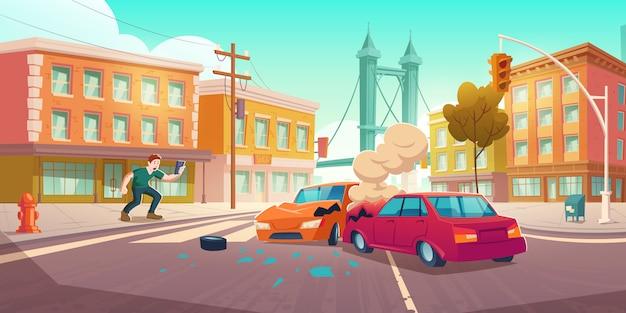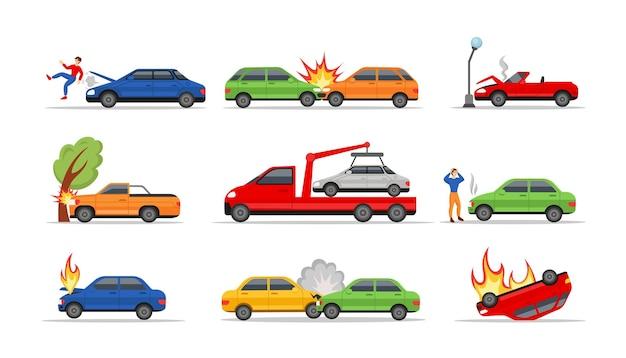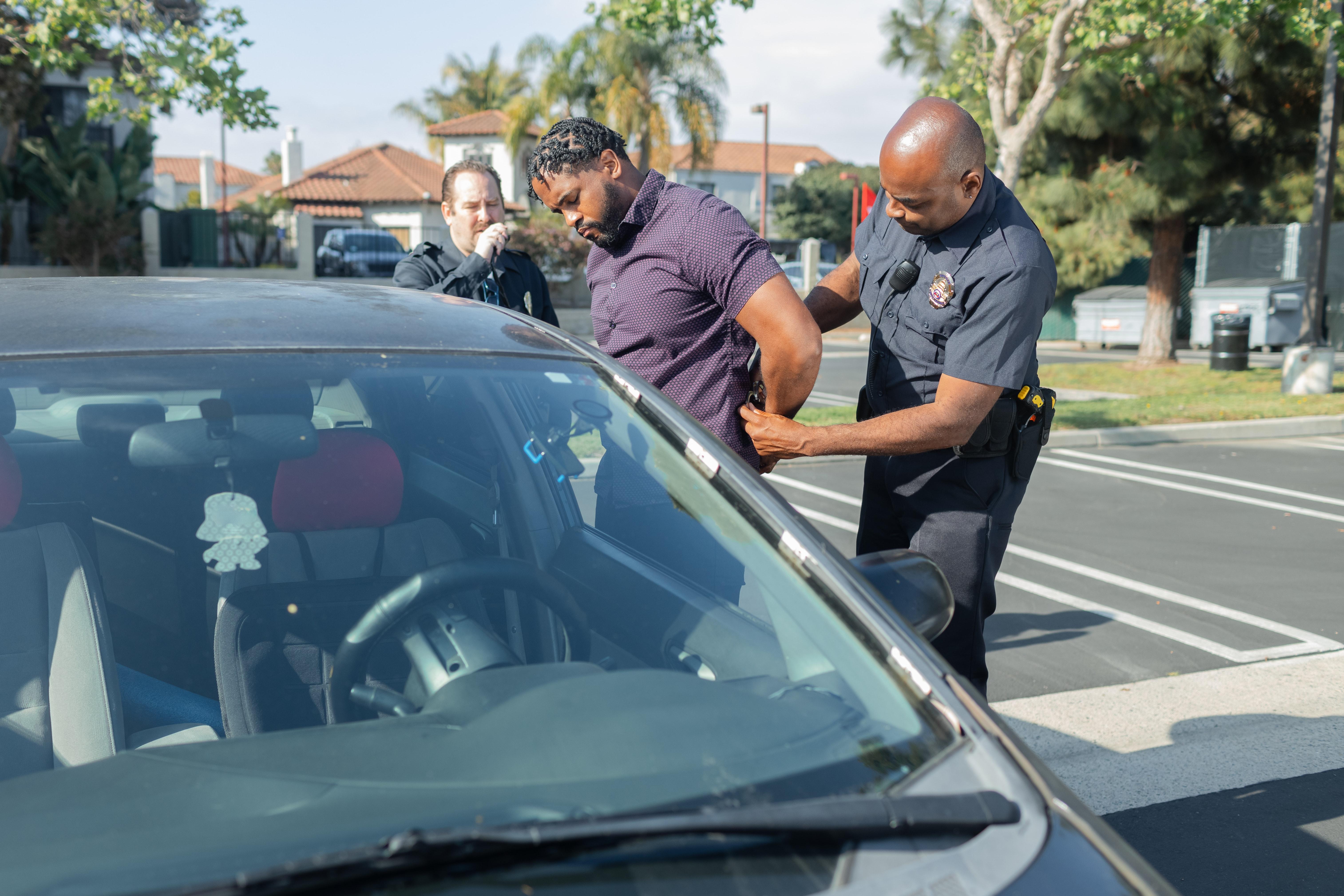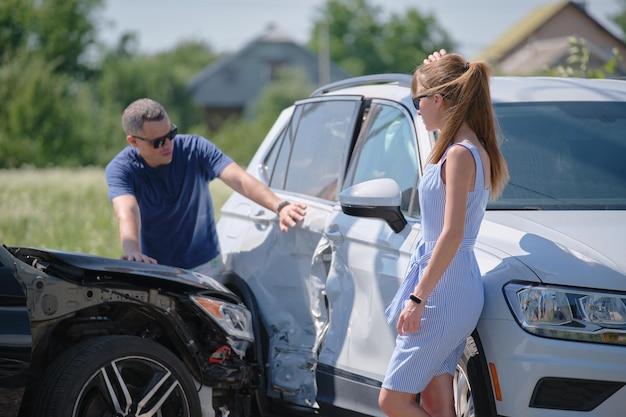Car accidents can be stressful, traumatic, and sometimes life-changing. In the aftermath of a collision, determining who is at fault is not always a simple matter. Even when a police report indicates the other driver is at fault, there may be a dispute between the parties involved. This blog post will explore some of the common questions and concerns that arise when the police report says the other driver is at fault, including how to prove your innocence, how adjusters determine fault, and what happens when someone lies about an accident. So, let’s dive in and learn more about this complex topic.
Understanding Police Reports and Fault Findings
If you have ever been involved in an accident, you know how confusing and stressful it can be. Not only do you have to deal with the aftermath of the accident, but you also have to deal with the police and insurance company. One of the most important documents that you will come across in this process is the police report. In most cases, the police report is used to determine who was at fault for the accident. Let’s take a closer look at how police reports work.
What is a Police Report
A police report is a written document that includes details about an accident. It contains information about the time, location, and people involved in the accident. The report also includes statements from witnesses and the drivers involved, as well as a diagram of the accident scene. The report is usually required by insurance companies to determine who was at fault for the accident.
What does the Police Report say about Fault
The police report can be used as evidence to determine who was at fault for the accident. However, it is not the final word on the matter. In some cases, the police report may not be accurate, or there may be other information that is not included in the report. Ultimately, it is up to the insurance companies and the courts to determine fault.
What does it Mean if the Other Driver is at Fault According to the Police Report
If the police report says that the other driver is at fault, it means that they were responsible for causing the accident. This can affect how the insurance companies handle the claim. If the other driver is found to be at fault, their insurance company will be responsible for paying for damages and injuries caused by the accident.
Can the Other Driver Contest the Police Report’s Finding
Yes, the other driver can contest the police report’s finding if they believe they were not at fault. They can provide additional evidence or eyewitness testimony to support their claim. Ultimately, it is up to the insurance companies and the court to determine fault.
What Should You Do if the Police Report Says the Other Driver was at Fault
If the police report says that the other driver was at fault, you should contact your insurance company and provide them with a copy of the report. They will be responsible for handling the claim and pursuing compensation from the other driver’s insurance company. It’s important to follow up with your insurance company to make sure that your claim is being handled properly.
In conclusion, understanding police reports and fault findings is essential when you are involved in an accident. While the police report can be used as evidence, it is not the final word on the matter. It is up to the insurance companies and courts to determine who was at fault for the accident. Always make sure to review the police report and provide additional information if necessary.
Is Driver One Always at Fault
When it comes to determining fault in a car accident, many people assume that Driver One is always responsible. But is this really the case?
The Truth About Fault Determination
In reality, fault is not always black and white. Even if the police report says the other driver is at fault, it’s possible that Driver One may share some responsibility for the accident.
Factors That Affect Fault Determination
Several factors can come into play when determining fault, including:
- The location of the accident
- The weather conditions at the time of the accident
- The behavior of both drivers leading up to the accident
- The testimony of witnesses
- The type and severity of the accident

Why It’s Important to Understand Fault Determination
Understanding how fault is determined can be crucial when it comes to making decisions about insurance claims and settlements. If Driver One is found to be partially at fault, for example, they may only be entitled to a portion of the damages.
So, is Driver One always at fault? Not necessarily. While the police report may seem like the final word on the matter, there are many factors that can influence fault determination. By understanding these factors, you can better navigate the aftermath of a car accident and ensure that you receive the compensation you deserve.
Other Driver Won’t Admit Fault
Have you ever been in a car accident where the police report clearly stated that the other driver was at fault, but they refused to admit it? It can be frustrating and infuriating, but unfortunately, it’s not uncommon. Here are some tips on how to deal with the situation:
Stay Calm and Collected
It’s easy to get angry and confrontational when someone won’t admit fault, but that will only make the situation worse. Stay calm and collected, and try to keep the conversation civil and professional.
Gather Evidence
If the other driver won’t admit fault, you’ll need to gather as much evidence as possible to support your case. Take photos of the damages and the scene of the accident, and get contact information from any witnesses.
Contact Your Insurance Company
Even if the other driver won’t admit fault, you should still contact your insurance company and report the accident. They will investigate the situation and determine who is at fault based on the evidence.
Consider Legal Action
If the other driver’s refusal to admit fault is causing significant issues, you may need to consider taking legal action. A personal injury lawyer can help you navigate the legal process and ensure that you receive the compensation you deserve.
Don’t Let it Get You Down
Dealing with someone who won’t admit fault can be frustrating, but don’t let it get you down. Focus on the positive and remember that you did everything you could to assert your rights and protect your interests.
When There’s No Police Report and the Other Driver Denies Blame
Being involved in a car accident is never a fun experience. It becomes worse when the other driver denies fault, and there was no police report. At this point, you might be thinking of bringing out your Sherlock Holmes hat to figure out who’s lying. But before you start playing detective, let’s examine what to do when this happens.
Get Witnesses Involved
Were there any witnesses at the scene of the accident? If yes, try to get their contact information. Their account of the accident can help prove your case if it ends up in court. However, ensure they are disinterested, impartial, and have no affiliation with either you or the other driver before engaging them.
Document the Scene
Don’t forget to take pictures of the damage caused during the accident and the surrounding area. It would be helpful if you back up your assertions with tangible evidence if there’s a legal dispute. Also, ensure that you have the contact information of the other driver and their insurance company.
Contact Your Insurance Company
It would be best to notify your insurance company of the accident even if the other driver denies responsibility. Your insurance company can assist you in seeking compensation for damages incurred, and they will also help you handle any disputes if it escalates.
Remember that when there’s no police report and the other driver denies fault, the burden of proof falls on you. Obtaining witness accounts, documenting the incident, and alerting your insurance company will assist you in establishing your case. Hopefully, you won’t have to encounter this issue in the future!
How Do Adjusters Determine Who is At Fault
When you’re in a car accident, one of the most critical aspects is determining who is at fault. This decision primarily serves as the basis for how your insurance claims adjuster will settle your claim.
Here’s a look at how adjusters determine who is at fault when there is no police report:
1. Reviewing the accident scene
The adjuster will begin by reviewing the accident scene to see if there are any external factors that contributed to the accident. For example, if the other driver had a clear view of the road and still hit you, they may be deemed at fault.
2. Checking the police report
If there’s a police report, it usually provides a comprehensive account of the accident, including who the police officer determined was at fault. However, the adjuster will still review the report to see if there is anything that was missed.
3. Interviewing witnesses
Adjusters will interview witnesses to the accident to help determine who is at fault. Witnesses incan provide vital information such as what they saw leading up to the accident and who they believe was at fault.
4. Examining your vehicle
The adjuster will check both vehicles for damage to determine who was responsible for the accident. If the damage to your vehicle shows that the other driver hit you, then it’s more likely that they were responsible for the accident.
5. Reviewing past accidents
Adjusters will review past accidents involving both drivers to better assess who may be responsible for the accident. If the driver has a track record of accidents or traffic violations, then there’s a higher chance they were responsible.
When it comes to determining who is at fault, it’s important to remember that no one blame criterion is the final say. Instead, adjusters take into account a combination of factors before making their determination. So, if you’ve recently been in an accident and believe the other driver is at fault, you know what to expect. Just sit back, let the adjuster do his job, and focus on your recovery.
Proving You’re Not At Fault For a Car Accident
If you’ve been in a car accident where the police report says the other driver was at fault, congratulations! You just won a battle! But before you celebrate, you need to ensure that your insurance claim goes smoothly. Here’s how to prove that you’re not at fault for the accident.
Get Eyewitnesses
Eyewitnesses are gold mines in car accidents. If there were any bystanders who saw the accident, get their names and contact information. Their testimony carries weight in insurance settlements and court cases.
Take Enough Pictures
Pictures can tell a thousand words in court. Don’t just take pictures of your car damage; take pictures of the other driver’s car too. If there are any road signs, traffic lights, or skid marks that can help explain how the accident happened, take pictures of those too. The more evidence you have, the better.
Bring Your Maintenance Records
If your car was in perfect condition when the accident happened, your maintenance records will back up your claim. If you haven’t done regular maintenance, it could hurt your case. Ensure that you have all the necessary paperwork to show that your vehicle was roadworthy at the time of the accident.
Call Your Insurance Company
Once you’ve gathered all of your evidence, call your insurance company and report the accident. Give the insurance adjuster a full account of what happened and provide them with any relevant information, including eyewitness statements and pictures. Your insurance company will then conduct their investigation and decide how to proceed with your claim.
In conclusion, being involved in a car accident can be a stressful experience. However, following these steps can help you prove that the other driver was at fault, which can result in a successful insurance claim. Just remember to stay calm, gather all the evidence that you can, and report the accident to your insurance company as soon as possible.
What Happens When Someone Lies About a Car Accident
If you’ve ever been in a car accident, then you know how stressful it can be to deal with insurance claims to get your car fixed. But what happens when someone lies about a car accident? This can take the stress level to another level entirely. In this section, we’ll explore exactly what happens when someone lies about a car accident and how to protect yourself.
It’s Not as Uncommon as You Think
It’s important to understand that lying about car accidents isn’t as uncommon as you might think. Sometimes people will lie about the details of the accident to avoid being held responsible for the damages, while others may try to fabricate the entire accident. When this happens, it can be challenging to sort out the truth from the lies. The good news is that there is a process in place to help determine who is at fault and what happened.
Investigation and “He Said, She Said”
When someone lies about a car accident, the truth can become muddled. It’s not always a simple matter of one driver’s word against another’s. Often, there are witnesses who can corroborate one driver’s story over the other. But even with witnesses, it can be tough to determine what actually happened. This is where investigations come in.
Consequences for Lying
If you’re caught lying about a car accident, there are severe consequences. Not only could you face criminal charges, but you could also be held responsible for any damages caused by the accident. This includes repairs to the other driver’s vehicle, as well as any medical bills they incur as a result of the accident.
Protecting Yourself
When it comes to protecting yourself against individuals who are lying about car accidents, there are several things you can do. First and foremost, make sure you have a police report. This will help to determine who is at fault and what happened. Secondly, make sure you are completely honest and transparent with your insurance company. Finally, if you suspect someone is lying about a car accident, speak to an attorney. They can help guide you through the process and ensure that your rights are protected.
Dealing with a car accident is never easy, but dealing with someone who lies about it can be even more difficult. However, by understanding what happens when someone lies about a car accident and taking steps to protect yourself, you can make the process as smooth as possible. Remember to always be honest and transparent and seek out legal advice if needed.


